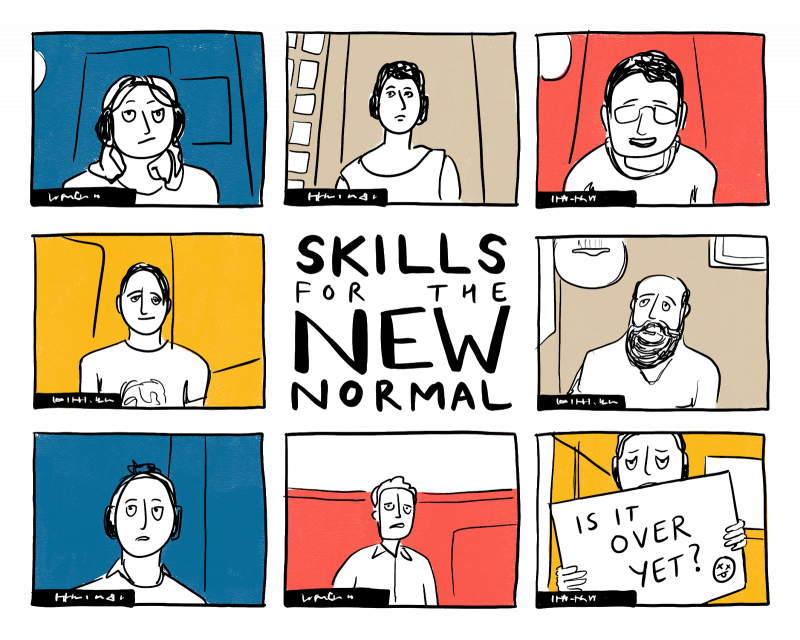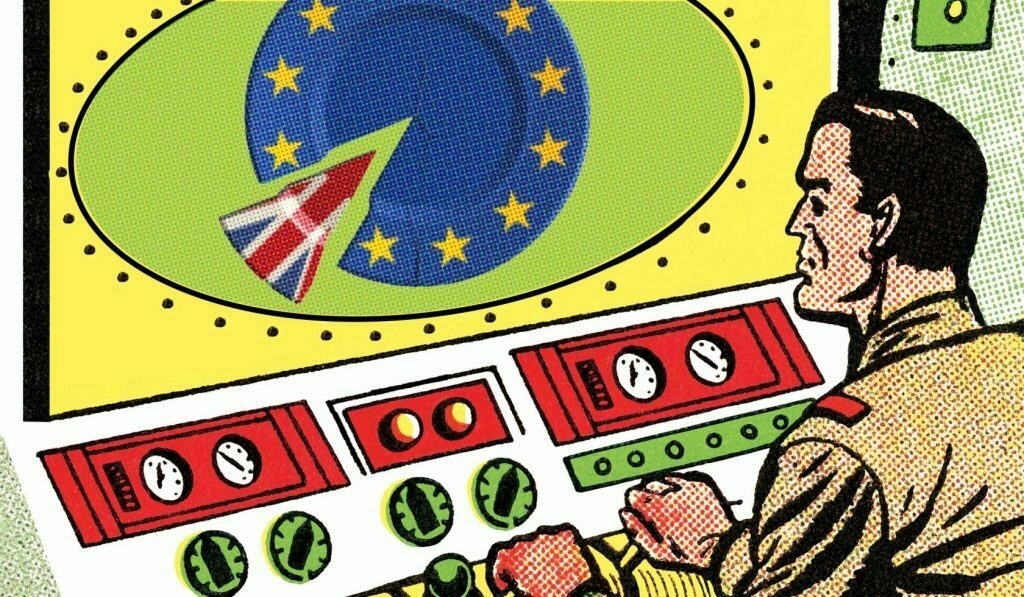Saturday shoutings
The link I'm most enthusiastic about sharing this week is one to a free email-based course I've created with my co-op colleagues. It's entitled The 7 Habits of Highly Effective Virtual Meetings and part of a new series we're working on.

The other links are slightly fewer in number this week because time, it turns out, is finite.
Clean Language: David Grove Questioning Method
Developing Questions
"(And) what kind of X (is that X)?"
"(And) is there anything else about X?"
"(And) where is X? or (And) whereabouts is X?"
"(And) that's X like what?"
"(And) is there a relationship between X and Y?"
"(And) when X, what happens to Y?Sequence and Source Questions
"(And) then what happens? or (And) what happens next?"
"(And) what happens just before X?"
"(And) where could X come from?"Intention Questions
"(And) what would X like to have happen?"
"(And) what needs to happen for X?"
"(And) can X (happen)?"The first two questions: "What kind of X (is that X)?" and "Is there anything else about X?" are the most commonly used.
As a general guide, these two questions account for around 50% of the questions asked in a typical Clean Language session.
BusinessBalls
I had a great chat with Kristian Still this week, for the first time in about a decade. Kristian was part of EdTechRoundUp back in the day, and early EduTwitter. Among the many things we discussed is his enthusiasm for "clean questioning" which I'm going to investigate further.
How ‘Sustainable’ Web Design Can Help Fight Climate Change
Even our throwaway habits can add up to a mountain of carbon. Consider all the little social emails we shoot back and forth—“thanks,” “got it,” “lol.” The UK energy firm Ovo examined email usage and—using data from Lancaster University professor Mike Berners-Lee, who analyzes carbon footprints—they found that if every adult in the UK just sent one less “thank you” email per day, it would cut 16 tons of carbon each year, equal to 22 round-trip flights between New York and London. They also found that 49 percent of us often send thank-you emails to people “within talking distance.” We can lower our carbon output if we'd just take the headphones off for a minute and stop behaving like a bunch of morlocks.
Clive Thompson (WIRED)
Small differences all add up. Our design choices and the decisions we make about technology all have a part to play in fighting climate change.

Apple, Big Sur, and the rise of Neumorphism
When you boil it down, neumorphism is a focus on how light moves in three-dimensional space. Its predecessor, skeumorphism, created realism in digital interfaces by simulating textures on surfaces like felt on a poker table or the brushed metal of a tape recorder. An ancillary — though under-developed — aspect of this design style was lighting that interacted realistically with the materials that were being represented; this is why shadows and darkness were so prevalent in those early interfaces.
Jack Koloskus (Input)
The dominant design language over the last five years, without doubt, has been Google's Material Design. Will a neumorphic approach take over? It's certainly an interesting approach.
Snowden: Tech Workers Are Complicit in How Their Companies Hurt Society
He called on those in the tech industry to look at the bigger picture regarding their work and its implications beyond simply a project—and to think deeply and take a stronger stand with regards to who their labor actually serves.
“It’s not enough to read, it’s not enough to believe in something, it’s not enough to write something, you have to eventually stand for something if you want things to change,” he said.
Kevin Truong (Motherboard)
The tech industry is an interesting one as it's a relatively new and immature one, at least in its current guise. As a result, the ethics, and the checks and balances aren't quite there yet.
To my mind, things like unions and professional associations show maturity and the kind of coming together that don't put moral decisions on the shoulders of individuals, but rather on the whole sector.

Tea, Biscuits, and Empire: The Long Con of Britishness
[T]here is a narrative chasm between the twee and borderless dreamscape of fantasy Britain and actual, material Britain, where rents are rising and racists are running brave. The chasm is wide, and a lot of people are falling into it. The omnishambles of British politics is what happens when you get scared and mean and retreat into the fairytales you tell about yourself. When you can no longer live within your own contradictions. When you want to hold on to the belief that Britain is the land of Jane Austen and John Lennon and Sir Winston Churchill, the war hero who has been repeatedly voted the greatest Englishman of all time. When you want to forget that Britain is also the land of Cecil Rhodes and Oswald Mosley and Sir Winston Churchill, the brutal colonial administrator who sanctioned the building of the first concentration camps and condemned millions of Indians to death by starvation. These are not contradictions, even though the drive to separate them is cracking the country apart. If you love your country and don’t own its difficulties and its violence, you don’t actually love your country. You’re just catcalling it as it goes by.
Laurie Penny (Longreads)
I always find looking at my country through the lens of foreigners cringe-inducing. I suppose it's a narrative produced for tourists but, sadly, we seem to have believed our own rhetoric, and look where it's gotten us...
How Big Tech Monopolies Distort Our Public Discourse
The idea that Big Tech can mold discourse through bypassing our critical faculties by spying on and analyzing us is both self-serving (inasmuch as it helps Big Tech sell ads and influence services) and implausible, and should be viewed with extreme skepticism
But you don't have to accept extraordinary claims to find ways in which Big Tech is distorting and degrading our public discourse. The scale of Big Tech makes it opaque and error-prone, even as it makes the job of maintaining a civil and productive space for discussion and debate impossible.
Cory Doctorow (EFF)
A tour de force from Doctorow, who eviscerates the companies that make up 'Big Tech' and the role they have in hollowing-out civic society.
Header image by Andrea Piacquadio
Every easy thing is hard again
Although he isn’t aware, it was Frank Chimero who came up with the name Thought Shrapnel in a throwaway comment he made on his blog a while back. I immediately registered the domain name.
In this article, a write-up of a talk he’s been giving recently, Chimero talks about getting back into web design after a few years away founding a company.
This past summer, I gave a lecture at a web conference and afterward got into a fascinating conversation with a young digital design student. It was fun to compare where we were in our careers. I had fifteen years of experience designing for web clients, she had one year, and yet some how, we were in the same situation: we enjoyed the work, but were utterly confused and overwhelmed by the rapidly increasing complexity of it all. What the hell happened? (That’s a rhetorical question, of course.)Look at the image at the top of this post, one that Chimero uses in his talk. He explains:
There are similar examples of the cycle in other parts of how websites get designed and made. Nothing stays settled, so of course a person with one year of experience and one with fifteen years of experience can both be confused. Things are so often only understood by those who are well-positioned in the middle of the current wave of thought. If you’re before the sweet spot in the wave, your inexperience means you know nothing. If you are after, you will know lots of things that aren’t applicable to that particular way of doing things. I don’t bring this up to imply that the young are dumb or that the inexperienced are inept—of course they’re not. But remember: if you stick around in the industry long enough, you’ll get to feel all three situations.The current way of working, he suggests, may be powerful, but it's overly-complex for most of his work
It was easy to back away from most of this new stuff when I realized I have alternate ways of managing complexity. Instead of changing my tools or workflow, I change my design. It’s like designing a house so it’s easy to build, instead of setting up cranes typically used for skyscrapers.Chimero makes an important point about the 'legibility' of web projects, a word I've also been using recently about my own work. I want to make it as understandable as possible:
Illegibility comes from complexity without clarity. I believe that the legibility of the source is one of the most important properties of the web. It’s the main thing that keeps the door open to independent, unmediated contributions to the network. If you can write markup, you don’t need Medium or Twitter or Instagram (though they’re nice to have). And the best way to help someone write markup is to make sure they can read markup.He includes a great video showing a real life race between a tortoise and a hare. He points out that the tortoise wins because the hare becomes distracted:
He finishes with some powerful words:
As someone who has decades of experience on the web, I hate to compare myself to the tortoise, but hey, if it fits, it fits. Let’s be more like that tortoise: diligent, direct, and purposeful. The web needs pockets of slowness and thoughtfulness as its reach and power continues to increase. What we depend upon must be properly built and intelligently formed. We need to create space for complexity’s important sibling: nuance. Spaces without nuance tend to gravitate towards stupidity. And as an American, I can tell you, there are no limits to the amount of damage that can be inflicted by that dangerous cocktail of fast-moving-stupid.Source: Frank Chimero